Conference overview
The Academy is focused on building inclusive cultures in engineering by providing tools and resources to support and challenge organisations. To support this goal, we hosted a conference on 30 November 2023, welcoming an audience of nearly 100 leaders in engineering and tech organisations. By placing emphasis on the importance of inclusion in innovation, we provided tangible support to startups, scaleups, and small- and medium-sized organisations through panels, group discussions, and workshops.
We were proud to join forces with Innovate UK for this event to share how we are working together to support the UK economy’s growth. Bringing together each organisation’s expertise to enrich a common audience allowed us to ensure innovation-led businesses and engineering companies have the talent and skills needed to thrive.
Event welcome and 'Inclusive innovation' panel discussion
The day began with a welcome from our hosts, followed by a conversation between Dr Hayaatun Sillem CBE, the Academy’s CEO, and Indro Mukerjee, CEO of Innovate UK, where they discussed the importance of inclusive cultures and creating conditions where innovation can thrive. This was followed by a panel on inclusive innovation, chaired by Hephzi Pemberton, Founder of the Equality Group. Please watch the video below:
Introducing Culture+ and Building Inclusive cultures panel discussion
We then heard from Melissa Sabella, founder of The Honeycomb Works, who gave some insight into the development of Culture+, the only equality, diversity, and inclusion (EDI) platform on the market designed especially for startups, scaleups, and SMEs in engineering. She then sat down to chair a panel on Inclusive Cultures, which you can watch below:
The second half of the day featured three breakout workshops covering the following topics:
- Unlocking EDI Success: In this session, organisational behaviour specialists The Honeycomb Works highlighted common Equity, Diversity, and Inclusion (EDI) challenges faced at different stages organisational development and proven strategies for overcoming them. Participants had the opportunity to connect and collaborate with other organisations, sharing challenges and successes and supporting each other to create tangible actions to help move your organisation forward.
- Impact Investment: What do investors want to know about your commitment to inclusion? :In this session, investors discussed how inclusion drives innovation and elevates long-term investment value, with insights from real-world examples, why they care and how participants can showcase this.
- Inclusive Innovation: Human centred design, engineering and innovating: In this session participants discussed the consequences of exclusion in innovation and engineering, thinking about how, if they worked collaboratively and took a human centred approach, they could build more inclusion into our innovation practices.
Speaker profiles
Host:
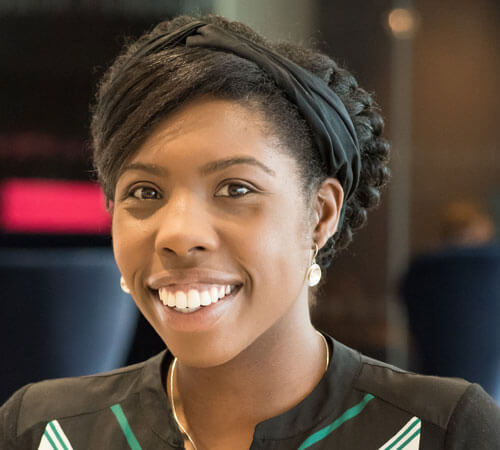
Rosa Morgan-Baker,
Senior Manager for Diversity and Inclusion at the Royal Academy of Engineering.
Rosa leads the Academy’s work with industry to accelerate the implementation of diversity and inclusion good practice throughout engineering. Her career started in the education sector, supporting young people in developing their literacy and writing career development programmes. Moving to the charity sector, Rosa worked closely with hundreds of businesses across multiple sectors, providing consultancy and training on building inclusive practice across an organisation and championing social mobility.
Alongside her focus on diversity and inclusion, Rosa has specialised in strategic development and system change, leading on fundraising, partnership development and programme innovation as Director of Development of two social mobility organisations. She continues to consult on fundraising and strategy development as Co-chair of the Fundraising Advisory Committee at The Cancer Awareness Trust.
Karen Souza,
Senior Diversity and Inclusion Partner at Innovate UK KTN
After working in the hospitality industry for 10 years and taking some time to expand her family, Karen entered the world of innovation. As someone with a passion for creativity in all its forms, she really enjoys working in this space. Back in 2015, she joined KTN’s Business Support team before moving into Reach and Engagement and then following her passion for Diversity and Inclusion.
Diversity and Inclusion have always been important to Karen and her interest in people, their individuality and uniqueness, is what led her to make this her primary role. Having lived through many personal life experiences and learning from others, Karen is committed to creating an environment that is supportive and inclusive of everyone.
Karen is currently leading Innovate UK and Innovate UK KTN’s extensive work on inclusive innovation. Having recently announced their first winners of the Inclusive Innovation award and she is now developing further support for individuals and businesses to create innovations that are truly inclusive.
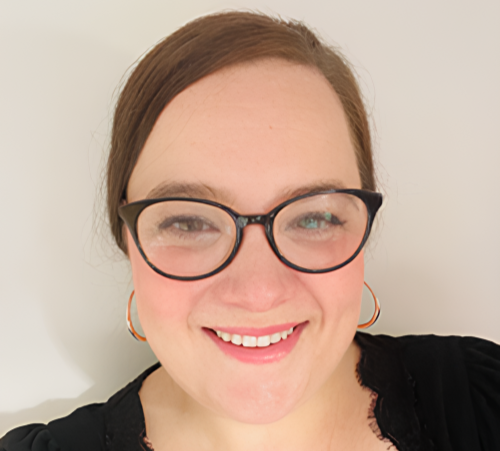
Keynote speakers:
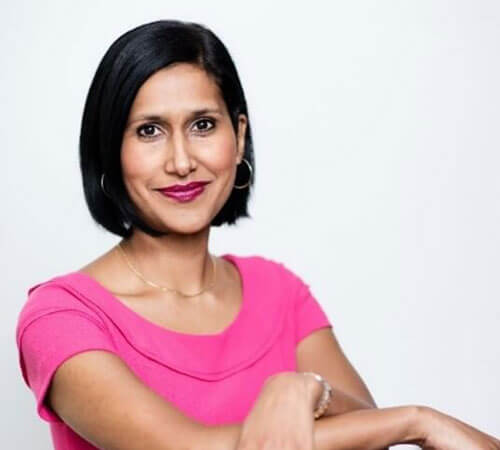
Dr Hayaatun Sillem CBE FREng,
CEO at the Royal Academy Of Engineering
Hayaatun is CEO of the Royal Academy of Engineering and Queen Elizabeth Prize for Engineering Foundation. She co-chairs with the Science Minister the government’s Business Innovation Forum and co-chaired with Sir Lewis Hamilton his Commission on improving Black representation in motorsport. She is a trustee of various charities, member of the government’s Levelling Up Advisory Council and Digital Skills Council and NXD at construction company Laing O’Rourke. She has been named as one of the ‘Inspiring 50’ women in tech in Europe and one of the most influential women in both UK engineering and UK tech.
She has a Masters in Biochemistry (MBiochem) from Oxford and a PhD from Cancer Research UK/UCL. She is a Fellow of the IET, Honorary Professor at UCL and Honorary Fellow at The Queen’s College, Oxford. She has received honorary doctorates from UCL, Imperial College London, Newcastle, Brunel, Huddersfield and Southampton, as well as a Science Suffrage Award and the Engineering Professor’s Council President’s Medal. She was a finalist for the Veuve Clicquot Bold Woman Award and was made a CBE for services to International Engineering in 2019. Prior to her current roles, she was Deputy CEO at the Academy and served as Committee Specialist and later Specialist Adviser to the House of Commons Science & Technology Committee.
Indro Mukerjee HonFREng,
CEO at Innovate UK KTN
Indro Mukerjee is CEO of Innovate UK, the UK’s innovation agency. He is a highly experienced technology CEO and business leader with a track record of leading innovation and technology commercialisation in businesses of all sizes across the world – from publicly listed and multinational corporations to new venture and private equity backed technology companies.
Indro has extensive experience of leading fast growth; start-up; spinouts; restructuring; turnaround and successful M&A. Much of his time was spent in Asia and the US. With a strong personal interest in the development of skills for industry, he cofounded the UK Electronics Skills Foundation (www.ukesf.org) and served on the SEMTA (now Enginuity) board for nine years, where he was also Chairman of the committee managing their investment fund. He is also a passionate advocate for diversity, equality, and inclusion. Indro has a degree in Engineering Science from Oxford University, is a graduate of the Wharton Advanced Management Program and speaks several European languages. Indro was elected as an Honorary Fellow of The Royal Academy of Engineering in September 2022.
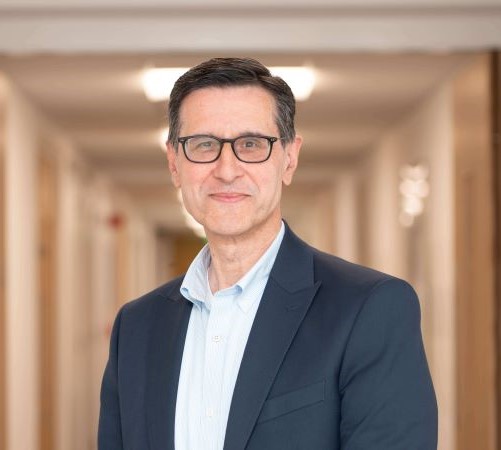
Panel: Inclusive innovations
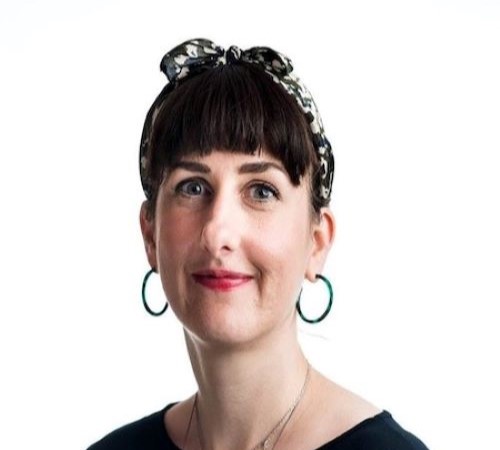
Abigail Hird, Chair
Founder & Director, Defankle Innovation
Over the last 15 years Abi has worked with thousands of businesses to address a variety of complex innovation challenges. Having worked as an academic, with industry and for public sector, Abi has breadth of perspective on innovation.
Abi brings a Systems Approach to everything she does. Specific expertise gathered over the years includes bringing manufactured products to market, planning innovation and, design in innovation.
Abi studied Product Design Engineering at The University of Strathclyde and has a Doctorate in Systems Engineering. Abi also has Post Graduate qualifications in Operational Research (the maths behind decision making) and Academic Practice. She is a Fellow of the RSA.
Hephzi Pemberton, Panellist
Chair & Founder, Equality Group
Hephzi Pemberton is an award-winning entrepreneur, advisor, author and angel investor. In 2018, Hephzi founded Equality Group, the tech-enabled Equality, Diversity and Inclusion consultancy that helps companies diversify their teams, build more inclusive cultures and develop data-led equality across industries. In 2021, she published the Amazon bestseller The Diversity Playbook, which is a practical guide to embedding inclusion and diversity across a business for long-term value creation.
Over the past decade Hephzi has advised and invested in several start-up technology companies, with a focus on people, strategy and leadership.
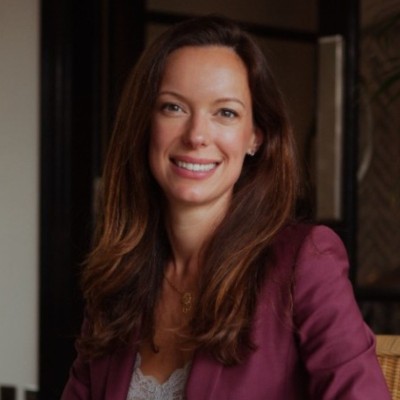
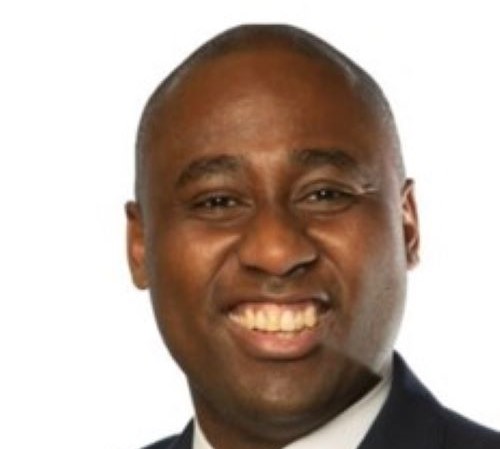
James Adeleke, Panellist
Founder & CEO, Generation Success
James Adeleke, a Nigerian-born, dyslexic Social Entrepreneur, is on a mission to change the world. He is the CEO of Generation Success, an award-winning Social Enterprise that works to tackle social inequalities in society and connect diverse talent to careers. He is a Co-opted member of the Education board at City of London Corporation, a school Governor at Newham Collegiate and Independent member of the Student Association Board at Arden University. He won the Entrepreneur of Excellence Award in the National Diversity Awards 2022, announced as EY's Accelerate Entrepreneur of the year 2021 and will be named in the Diversity Powerlist 2023 by Inclusive Awards
Omar Massoud, Panellist
Co-founder, Autsera
Omar Massoud is a chartered engineer and entrepreneur, with a passion for leveraging engineering and technology for social impact, equality, and inclusion. He is a co-founder of Autsera, where he oversees business management and strategy, ensuring the successful execution of Autsera's mission to democratise the provision of effective social communication interventions by making them accessible, affordable and fun for all. He also founded Bridjes, an engineering and technology consultancy, and co-authored "The Business Growth System" book.
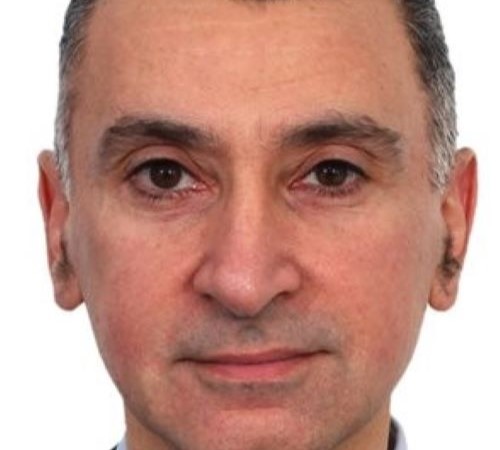
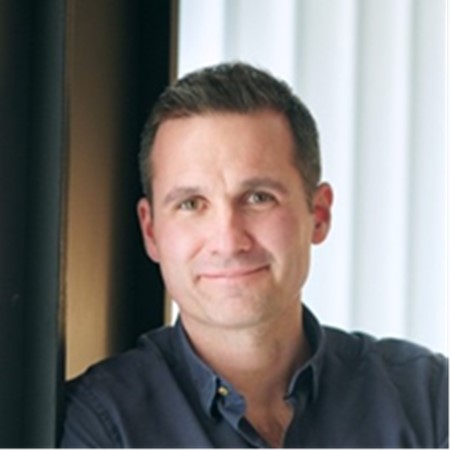
Ed Warner, Panellist
Founder & CEO, Motionspot
Ed Warner founded the inclusive design business Motionspot in 2012 after his friend and Co-Founder James Taylor was paralysed in a diving accident and left underwhelmed by the clinical design and poor quality of adaptations in his home. Ed has since built Motionspot into a RIBA award winning industry leader in inclusive design. Ed was also the Government Sector Champion for the design of Accessible Spaces and Products for a three-year term between 2019 and 2022. Ed is an experienced public speaker on inclusive design topics relating to the built environment including how inclusive design supports the ‘S’ in ESG and is a vital component of EDI strategies.
Panel: Inclusive cultures
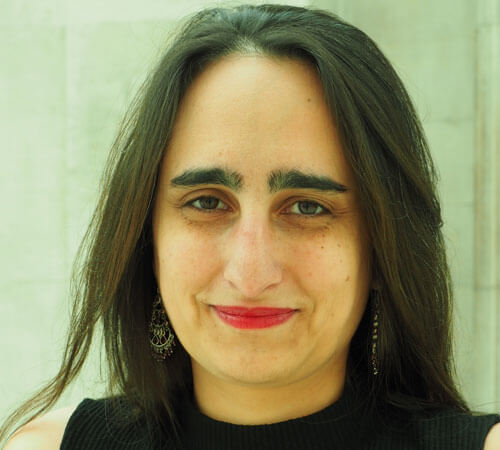
Melissa Sabella, Chair
Founder and CEO, The Honeycomb Works
Melissa Sabella is the founder and CEO of The Honeycomb Works, an organisation whose mission is for everyone at work to feel like they belong and are free to invent. They use research, evidence, data,
and technology to advance diversity, equity and inclusion in organisations.
Prior to launching The Honeycomb Works, Melissa led innovation teams in global organisations to deliver innovative, market-leading new products. She has successfully led multiple transformation projects and is regularly invited to speak on human-centred design, learning, and inclusivity. Melissa is an Italian-American living in London trying to follow baseball and be a better global citizen.
Joanna Whiteman, Panellist
Head of Diversity and Inclusion, Royal Academy of Engineering
Joanna leads the Academy’s work to accelerate diversity and inclusion throughout engineering. Joanna’s team works with engineering companies, academic institutions and professional bodies, providing evidence-based programming and rigorous research to support them and enable their good practices to reach the wider profession.
Joanna began her career as an employment lawyer, advising companies across the UK as they sought to comply with the Equality Act 2010. She then moved into the charitable sector and, as Head of Litigation and then Co-Director at the Equal Rights Trust, she supported global partners to use the law to advance equality. Joanna has advised, trained and guided hundreds of organisations as they embed inclusive practices in their own work and continue their work advocating on behalf of underrepresented communities. She has also worked closely with organisations on developing equality policies and advocating for relevant legal reform at the national and international level.
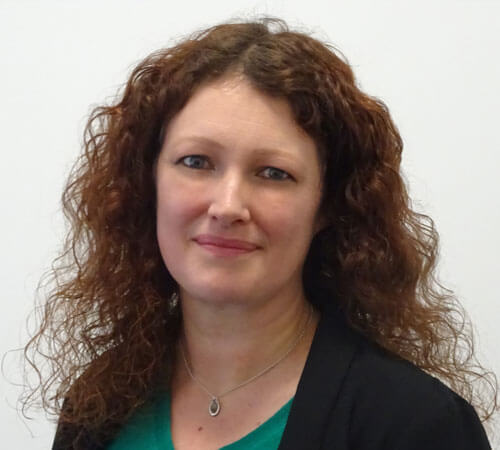
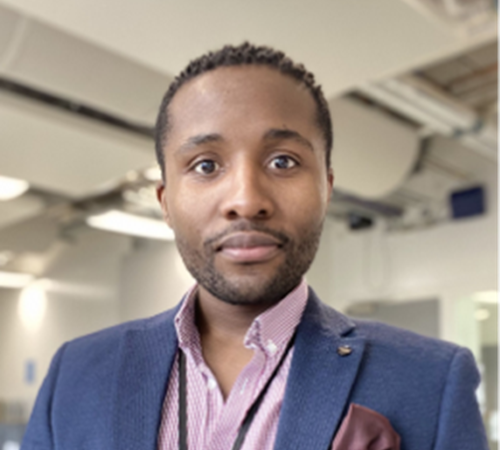
James Kusena, PhD, Panellist
Vice President of Operations
MicroFluidX
James is the Vice President of Operations at MicrofluidX, where they are developing the Cyto Engine, a cell therapy bio-processing and manufacturing platform. James has experience in cell and gene therapy process development and process translation for manufacturing. His work has focused on understanding the translational requirements for robust product realisation, considering aspects such as process development, manufacturability and ultimately the clinical adoption and health economic implications.
James also has strong entrepreneurial background and experience having started and been involved in a ventures ranging from biotech, health & fitness, food retail, e-commerce to real estate. He holds a Ph.D. in regenerative medicine from the Centre of Biological Engineering at Loughborough University, UK and is an awardee of the Royal Academy of Engineering’s Shott Scale Up Accelerator Award.
Elspeth Finch MBE FREng, Panellist
CEO, IAND
Elspeth Finch MBE is best described as a successful engineering entrepreneur and business leader. From her
background as a transport planner, she has founded two technology start-ups, been a senior leader within the engineering consultancy Atkins and, alongside her current business IAND, she sits on several advisory boards, contributing her expertise to enhance and transform engineering. Her early impact was recognised with the award of an Academy Silver Medal (2013) and since then she has made an ongoing contribution to the Academy.
She continues to have wider impact through membership of bodies such as the Innovation Expert Group, providing advice on driving up UK productivity through innovation.
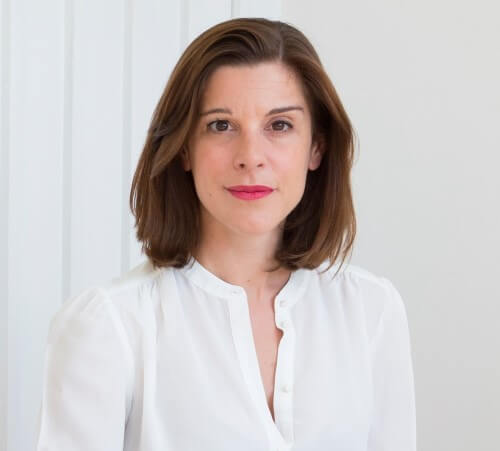
Workshop:
Unlocking EDI Success
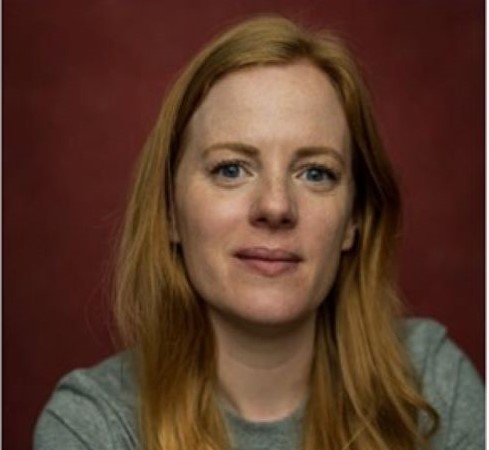
Muireann Bird, Facilitator
Research & Impact Lead, The Honeycomb Works
Muireann is a researcher, facilitator and DEI consultant working with The Honeycomb Works. Her research interests include effective, evidenced-based ways to create inclusive cultures with a particular focus on the experiences of the LGBTQ+ community.
She particularly enjoys creating interactive workshops drawing on research around the use of narrative and empathy to create lasting change through engaging experiences. Her research and design approach is influenced by an MA from Goldsmiths in Critical and Creative analysis.
Ola Ojuko, Facilitator
Marketing Lead, The Honeycomb Works
Ola is invested in transforming workplaces into inclusive spaces for everyone, with a focus on anti-Black racism. With a background in secondary school education (English and Media Studies), Ola uses her skills to create engaging content for both events and marketing materials at The Honeycomb Works.
She is currently completing her Master's degree in Education: Culture, Language, and Identity at Goldsmiths, University of London and hopes to use the insights gained during her studies to inform her DEI practice.

Impact Investment: What do investors want to know about your commitment to inclusion?
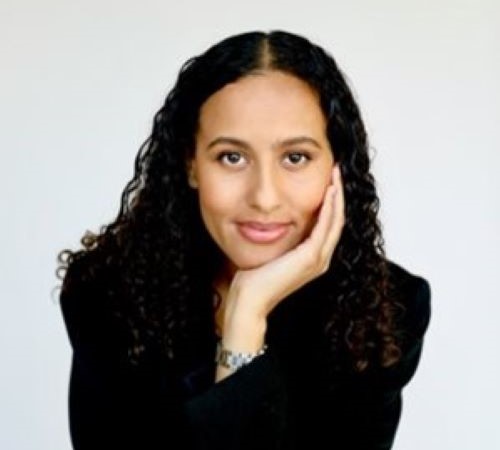
Jasmin Thomas, Facilitator
Jasmin has forged a distinguished career spanning over a decade, with a primary focus on human capital management and the strategic formation of early-stage tech teams for some of the UK's most prominent unicorns. Transitioning seamlessly from her role as a founder to a seasoned investor, Jasmin brings with her a comprehensive understanding of the entire startup lifecycle.
Throughout her professional journey, a common and unwavering thread has been Jasmin's dedicated commitment to diversity and inclusion in every facet of her work. With a mission rooted in supporting underrepresented voices, she has consistently demonstrated a passion for fostering a more inclusive and equitable landscape within the tech industry.
Inclusive Innovation: Human centred design, engineering and innovating
Abigail Hird, Facilitator
Founder & Director, Defankle Innovation
Over the last 15 years Abi has worked with thousands of businesses to address a variety of complex innovation challenges. Having worked as an academic, with industry and for public sector, Abi has breadth of perspective on innovation.
Abi brings a Systems Approach to everything she does. Specific expertise gathered over the years includes bringing manufactured products to market, planning innovation and, design in innovation.
Abi studied Product Design Engineering at The University of Strathclyde and has a Doctorate in Systems Engineering. Abi also has Post Graduate qualifications in Operational Research (the maths behind decision making) and Academic Practice. She is a Fellow of the RSA.

Useful documents
D&I systems map
The systems map is a reflection tool. Conference attendees can interact with the Systems map answering the following questions: • What parts of this inclusive leadership systems map particularly resonate with you? Do any parts of the map reflect your own experience in engineering? • If you’d like to, please use a post-it note to tell your story in a few sentences. What happened and what was the impact (positive or negative)?
Engineering Inclusive Cultures: Table Talks
Engineering Inclusive The Inclusive Cultures research puts forward four recommendations to for the engineering community to implement in their practice going forward. In your groups, choose one of the recommendations below and answer the following two questions: a) What are potential barriers to implementing this recommendation? b) What can we do to remove these barriers?
